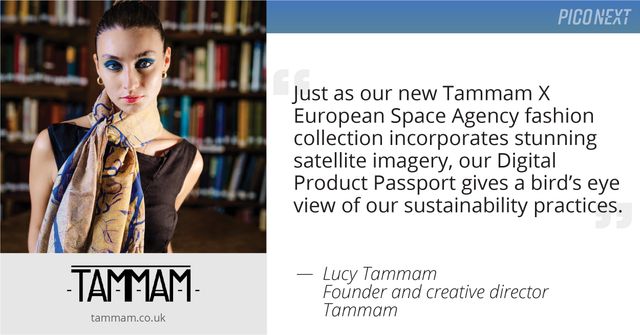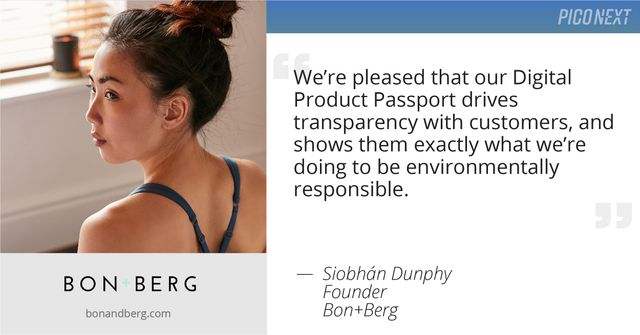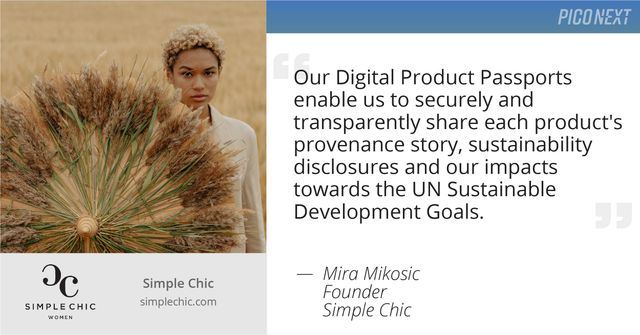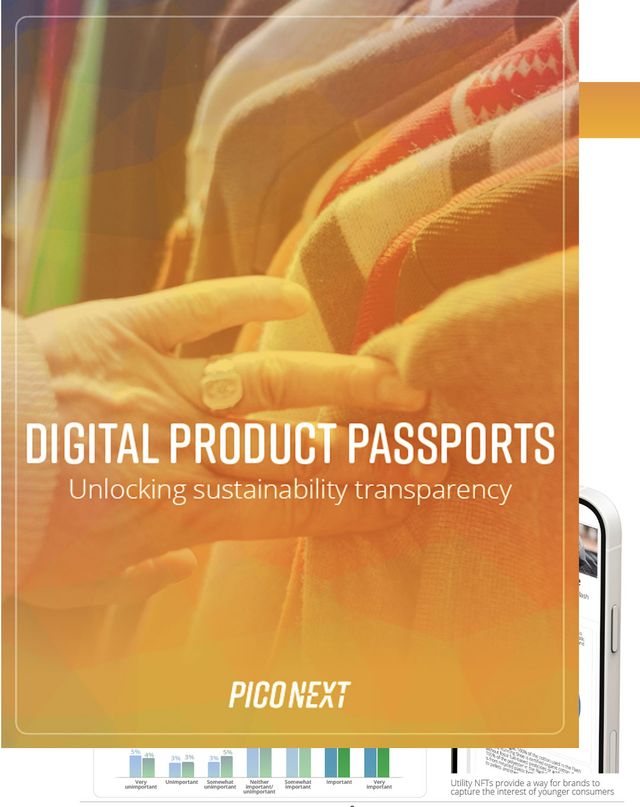Increasingly, Gen Z consumers place high importance on where their products come from and how they are made. To address these concerns, some companies are turning to product traceability efforts that track a product’s journey from its source to the buyer, build trust, and ensure that products are safe and made ethically. By combining blockchain technology with Digital Product Passports, businesses can enhance traceability, improve transparency, and provide reliable information about products throughout their lifecycle.
What is product traceability?
Product traceability means following a product from its starting point all the way to the consumer. This includes everything from sourcing raw materials to manufacturing, packaging, and selling the product. Product traceability is important for consumers because it ensures that the products they buy are safe and ethically produced. It also helps companies quickly identify and resolve any issues with their products. With better traceability, companies can reduce waste and improve their processes, making them more sustainable.
The role of blockchain technology
A blockchain is a public ledger that is shared across many computers. Each entry in the ledger is securely recorded and linked to the previous one, forming a chain of information. Because it is not located in any one place – but rather decentralised, or replicated across computers – everyone involved in the supply chain can access the same information written to it.
The transparency enabled by a blockchain enhances product traceability. With a blockchain, all key details about a product—such as where it was made, what materials were used, and its quality certifications—can be securely recorded. Then, consumers, suppliers, distributors, and regulators can view the information and ensure that products made are authentic and responsibly made.
What are Digital Product Passports?
Digital Product Passports (DPPs) are electronic records that provide essential information about a product’s journey. You can think of a DPP as an ID card for every product. A Digital Product Passport includes details about where the product comes from, how it was made, and its environmental impact. When paired with blockchain, DPPs offer a secure way to store and share important product information. With a DPP, consumers can easily access product details – through a QR code, RFID tag or other data carrier – allowing them to make informed decisions about what they buy. Digital Product Passports are soon to be required in the European Union for a variety of product categories.
View an overview of blockchain Digital Product Passports
Benefits of product traceability with blockchain Digital Product Passports
Improved transparency
Blockchain and Digital Product Passports create a system where product details are recorded and visible to everyone involved in the supply chain. Consumers can see the full history of a product, which builds confidence in its authenticity and ethical sourcing. This transparency not only fosters trust but also encourages companies to maintain high quality and safety standards, knowing their practices are viewable on a public ledger.
Enhanced security and integrity
One aspect of blockchain technology is its ability to keep data secure. Each record in the blockchain is encrypted, making it difficult for anyone to change or tamper with information without permission. And when changes are made, the ledger records exactly who appended new information to the blockchain. Because the data is traceable, consumers can have a higher level of trust in the integrity of the product information. And with counterfeit products a concern in some product categories, blockchain offers reassurance that the details about a product are accurate and reliable.
Consistent and trustworthy data across the supply chain
A blockchain helps ensure that product data remains consistent throughout the entire supply chain. Since all changes and updates are recorded in one system, everyone can rely on having accurate and up-to-date information. By providing a clear flow of information, businesses can work more efficiently with actors in the supply chain, reduce errors, and build greater trust with their customers.
Data reliability and persistence
Blockchain technology keeps data in a decentralised manner, distributing it across numerous connected computers. This approach enhances the reliability of the data and helps minimise network problems. Another advantage is that information stored on a blockchain remains there permanently. Even if the original company that uploaded the data ceases to exist, the information remains accessible because it is copied across various computers. This feature is particularly beneficial for complying with the new EU Digital Product Passport regulations.
Building consumer trust
For a brand, customer trust is at the heart of all product and marketing activities. With this in mind, Digital Product Passports allow for streamlined verification of product authenticity, sourcing activities, and environmental responsibility programmes. When consumers can access detailed information about a product’s journey, they can make choices that align with their values. This transparency makes them more likely to trust and remain loyal to brands that prioritise responsible practices.
Examples: Blockchain Digital Product Passports
Many companies are successfully using blockchain and Digital Product Passports to improve traceability and build trust with their customers.
Tammam
Tammam is a couture fashion brand located in London, England. They recently developed a new scarf line in collaboration with the European Space Agency, featuring unique satellite prints on eco-friendly fabric. To enhance this product, Tammam created a Digital Product Passport that uses blockchain technology to ensure the data is secure, transparent, and cannot be changed once recorded.

Bon+Berg
Bon+Berg is a women's undergarment brand located in Dublin, Ireland, that emphasises a sustainable supply chain. To demonstrate its commitment to responsible sourcing, carbon reduction, and social impact, the company developed a Digital Product Passport. Bon+Berg used a blockchain-based Digital Product Passport published with PicoNext, to share sustainability information about products with customers.

Simple Chic
Simple Chic is a circular clothing e-commerce platform for women located in Sydney, Australia. The brand developed a Digital Product Passport that highlights important aspects of its ethical and sustainable supply chain, covering areas such as materials sourcing, sustainability philosophy, manufacturing, shipping, product care, recycling, and reuse. By using a blockchain-based Digital Product Passport along with PicoNext Enterprise APIs, Simple Chic integrated this information seamlessly into its custom-branded website. This approach allowed them to maintain the brand experience that their customers have come to expect.

Is a blockchain required for Digital Product Passports?
The European Union has initial legislation for Digital Product Passports, the Ecodesign for Sustainable Products regulation. Follow-on regulations to this initial legislation will define DPP requirements for different product categories. Blockchain is not specified as a requirement currently, although forward-thinking companies that want to demonstrate transparency in their product efforts are turning to blockchain-based DPPs to build trust with customers.
Challenges for Blockchain DPPs
Although there are many benefits to using blockchain and Digital Product Passports, there are challenges to consider. Some businesses may be worried about migrating their IT and supply chain workflows to a public ledger, since they involve new and unfamiliar concepts. Others are gaining executive buy-in and proving the concept.
Despite these challenges, the future looks bright for blockchain-based product traceability. As the technology advances and consumers demand more transparency, businesses are finding ways to make blockchain-based Digital Product Passports easier to access and implement. Companies that tackle the workflow challenges head-on will be better positioned for success as Digital Product Passports regulations become a reality in many locations.
Blockchain DPPs: Driving authenticity
The modern consumer demands authenticity in customer interactions, brand programmes, and not least, the products they purchase. As such, product traceability is vital to attract and retain these buyers. By combining blockchain technology with Digital Product Passports, brands can offer improved safety, transparency, and accountability in the supply chain. And by giving consumers the information they need to make informed choices, businesses can build trust, support sustainability, and contribute to more responsible circular economies.
Learn more about Blockchain Digital Product Passports
- Video demo. View how blockchain works in PicoNext DPPs in our video demo
- Request consultation. Learn more by requesting a consultation with a PicoNext DPP expert
- Case studies. Read case studies of blockchain Digital Product Passports for Simple Chic and Bon + Berg


